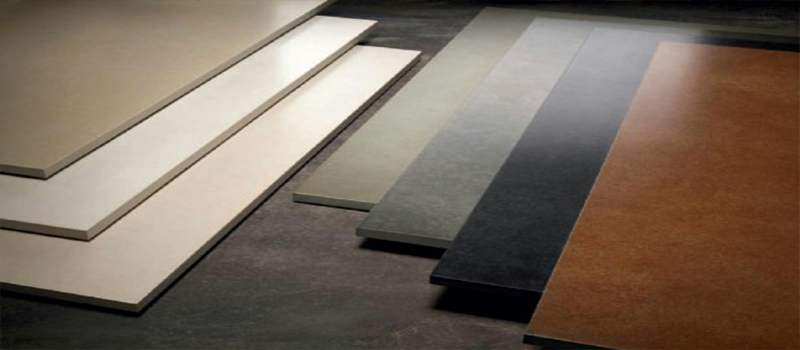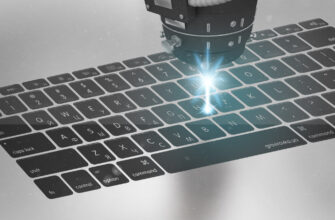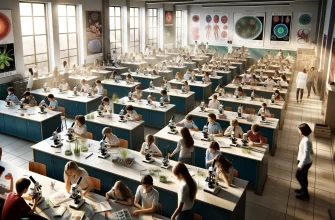Porcelain tiles (or ceramic granite) It is an artificial facing material, has many unique qualities to their operational and technical characteristics. Porcelain tiles are easily distinguished from tiles, eg, floor tiles Cerrad SETIM MIST (granite) on the cut has the same pattern, as on the surface, ceramic tiles for the kitchen or bathroom do not repeat the pattern. The technology for the production of porcelain stoneware is also very different from the technology for the production of ceramic tiles.. Porcelain stoneware goes through several stages before it becomes a high-quality and unsurpassed finishing material:
- Drawing up a basic (clay) mixes.
- Forming process.
- Firing process.
- Quality control of received products.
- Sorting porcelain stoneware.
- Warehousing.
For each separate category or class of porcelain stoneware, a certain batch is made, consisting, usually, from special clays (montmorellonite and kaolin), feldspar, quartz sand and various dyes. At this stage of production, such important qualities as the color scheme of the collection and the degree of moisture absorption are laid in porcelain stoneware..
Another production step – porcelain stoneware molding process – can be done in several ways:
- casting,
- extrusion,
- pressing.
The most commonly used method – pressing (casting and extrusion are used for the manufacture of glass tiles or for the production of decorative elements). Porcelain stoneware is pressed once or twice after drying and under very high pressure – to 500 kilograms per square centimeter of area. Further porcelain stoneware, posted in forms, undergoes a final drying process and smalt coating (glaze) or the formation of a relief surface.
For firing, porcelain stoneware is placed in special ovens, where the firing process takes place at temperatures up to 1300 ° Celsius. For the uniformity of the process and obtaining durable tiles, porcelain stoneware in the oven is subjected to constant movement and periodic programmed temperature changes. This stage of production is extremely important, because at this time, porcelain stoneware acquires all the qualities, distinguishing it from other finishing materials. Porcelain stoneware is fired much longer, than ordinary ceramic tiles.
After firing, it undergoes a thorough quality control to reject failed tiles. This process can take place both with the help of special electronic equipment., as well as manual (mechanically). Porcelain stoneware undergoes special electronic scanning by highly sensitive electronic equipment to check uniform color and pattern, and the strength test involves the mechanical action of the test weight, forcefully lowered onto the porcelain stoneware tiles, reveals all hidden texture imperfections. At the end, the material is visually checked for compliance.
Porcelain stoneware is sorted according to the test results, wrapped in thermal film and marked accordingly. Warehousing involves sending received batches to warehouses for further delivery to suppliers. In this way, production process, see how, almost completely automated and the share of human participation is the smallest percentage – only for visual control and storage of the received products. Porcelain tiles, passed an electronic check for quality and compliance with the declared class, features unsurpassed quality and durability.
Porcelain stoneware belongs to the category of high-quality cladding products and is in many ways different from most finishing materials, he:
- incredibly resistant to surface wear;
- endowed with quality excellently withstand sudden temperature fluctuations;
- frost-resistant finishing material;
- has increased resistance to mechanical stress;
- perfectly repels moisture (water absorption of the whole order 0,05 percent);
- has an increased material density;
- it is possible to make in different colors;
- is color fast;
- has a varied surface texture, etc.. d.
If we compare this finishing material with the most familiar claddings, then the list of positive qualities, with which porcelain stoneware is endowed, very large, thanks to which it finds application not only in the most typical conditions, but also in extreme, where there is a risk of being exposed to extreme high temperatures, high humidity and heavy loads on the floor surface.
If we compare porcelain stoneware with the same ceramic tiles, then in this respect the material has found the highest distribution as floor and paving slabs, in interior decoration, garden paths, decorative pavements, open verandas, terraces, gazebos and other things. In open skies, the material feels great, not at all exposed to the destructive effects of weather and climatic conditions, and steadfastly overcomes all adversity in the form of frost, heavy rains, frequent snowfalls, increased cross-country ability.
Porcelain stoneware floor tiles (in closed rooms) feels great in large buildings, where high throughput is expected and, Consequently, surface abrasion. it – airport lounges, railway, river and sea terminals, large hub stations, bus stations, large-scale super- and hypermarkets. Due to its unsurpassed performance and technical characteristics, porcelain stoneware has gained great popularity in the world market.












